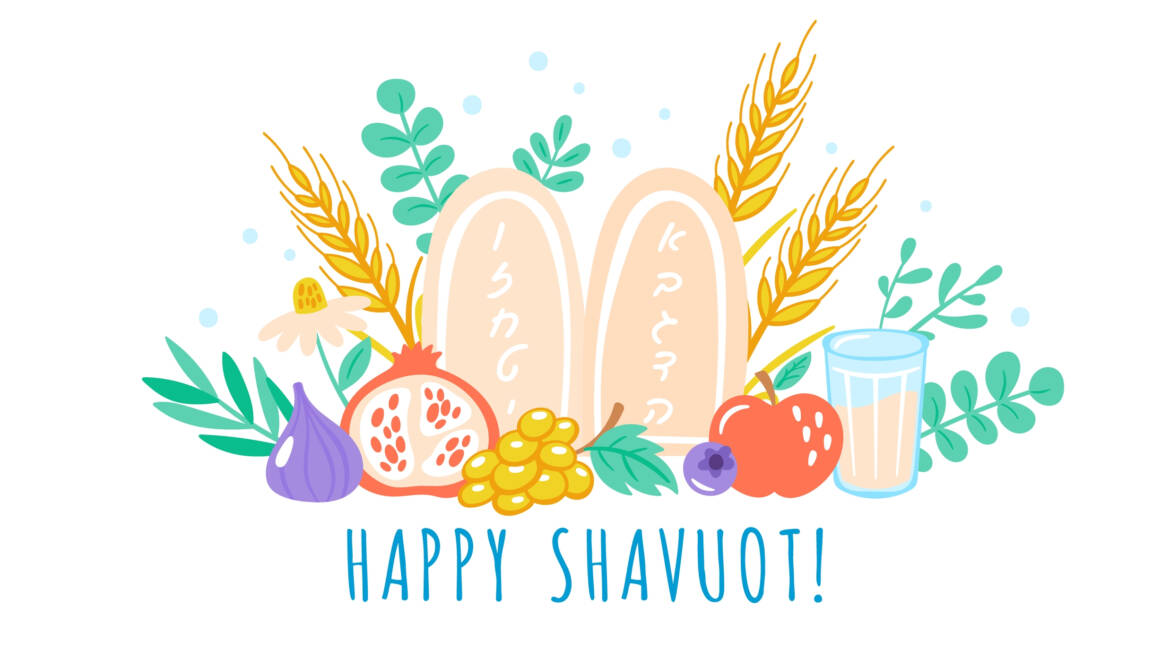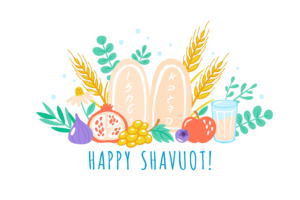By: Rabbi Bryan Kinzbrunner, BCC
Director of Religious and Spiritual Service
Shavuot commemorates one of the first climactic moments post Exodus. At Mount Sinai, the Israelites received the ten commandments, a set of laws and ethics that continue to be building blocks for living in society. If we were to consider these rules carefully, we quickly realize that they are not nearly enough to truly build a society. As such, what are we really celebrating when it comes to Shavuot?
In Deuteronomy, Moses shares with the Israelites his final series of messages before his death. Among his words is a famous passage (Deuteronomy 30:11-14):
Surely, this Instruction which I enjoin upon you this day is not too baffling for you, nor is it beyond reach. It is not in the heavens, that you should say, “Who among us can go up to the heavens and get it for us and impart it to us, that we may observe it?” Neither is it beyond the sea, that you should say, “Who among us can cross to the other side of the sea and get it for us and impart it to us, that we may observe it?” No, the thing is very close to you, in your mouth and in your heart, to observe it.
In these words, Moses reminds the people that the Torah is not esoteric. The Torah is not something extraordinary. It is something integral to life, so integral that it must come down from the mountain. It cannot remain in the heavens; it cannot remain at a distance. The Torah needs to be incorporated into our lived experiences.
To incorporate the Torah into our lives, the process is not simply one of saying, we will do. Sure, the Israelites made this declaration in the words (Exodus 24:7), Naaseh V’Nishma, we will do and we will understand, yet, when it came time to present the actual system of law, it was done in stages, to incorporate this new world, this new lived system into their lives. To highlight this idea, one of great Jewish medieval biblical commentators, Rashbam, offers a deeper reading of the phrase from Exodus, “We will carry out what God has said already, and we are also prepared to listen (obey) to what God will command from here on in.” In essence, the revelation of the Torah is continuous, one that did not end on Shavuot, rather started.
With these two points, about the Torah’s accessibility and the concept of continuously being willing to listen and learn, we can understand what we are celebrating on Shavuot. We are celebrating the Torah as the gift for living. We are celebrating the Torah as the chain of tradition that lives in this world, that is not otherworldly but of the world. The Ten commandments were the first installment, giving a set of primary societal needs, including the sanctity of time and sanctity of human life.
May we continue to raise up the legacy of Shavuot, celebrating the gift of the Torah as a living document that guides us towards living a sacred, holy life. May this Shavuot be one when we reflect on the Torah as a guide we can all strive to grasp onto, continuing in the legacy we cherish.


